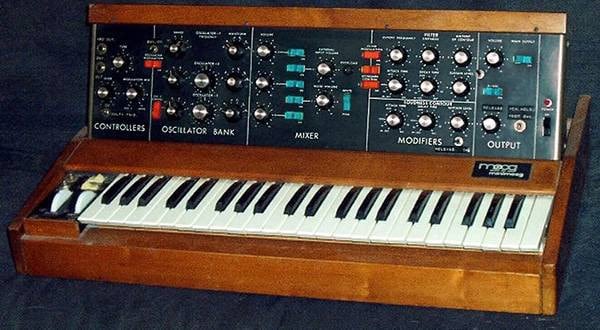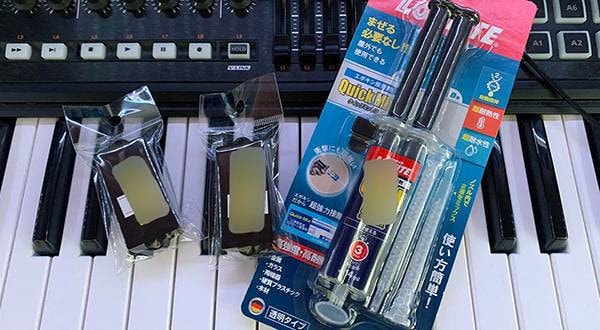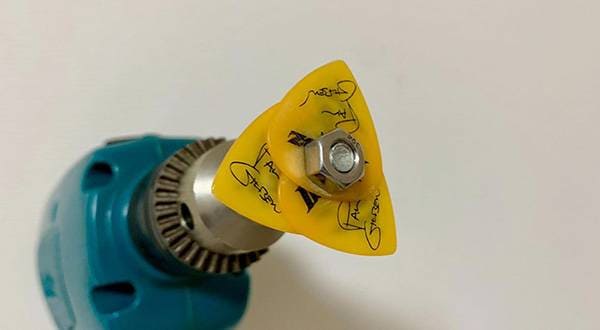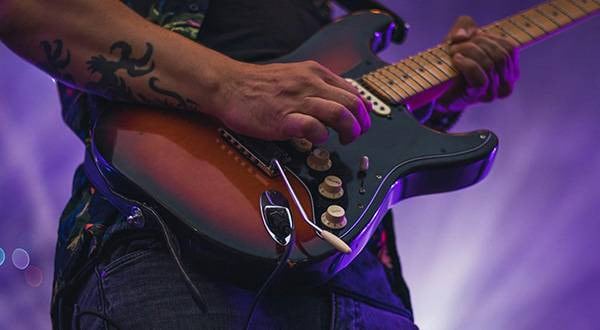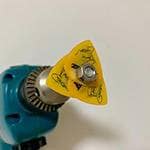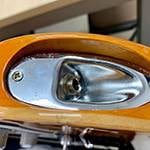Hello, Conservario here.
So, how much do you practice every day?
15 minutes? 2 hours? Or maybe you don’t keep track of it?
There are probably various answers to this question, as everyone has their own approach. The content and the amount of time that you dedicate for practice should change depending on your skill level.
What I’m about to write is just from my perspective. These are not a set of rules that you absolutely have to strictly follow.
Please read with the mindset of picking up tips that might be useful to you.
■ Daily Practice Time
To get straight to the point, here's my recommendation:
"Practice 3 things for 15 minutes each."
Of course, if you want to practice for hours, that's perfectly fine. However, given how busy many people are these days, the notion that "you must practice at least 2 hours a day to improve" has become less common.
Unless you have goals like aiming to become a professional or win a ukulele world championship, for most people, practicing for 15 to 30 minutes daily will definitely lead to improvement.
So, what should you practice within these 15 minutes that also covers three items?
Let’s start with an example for beginners.
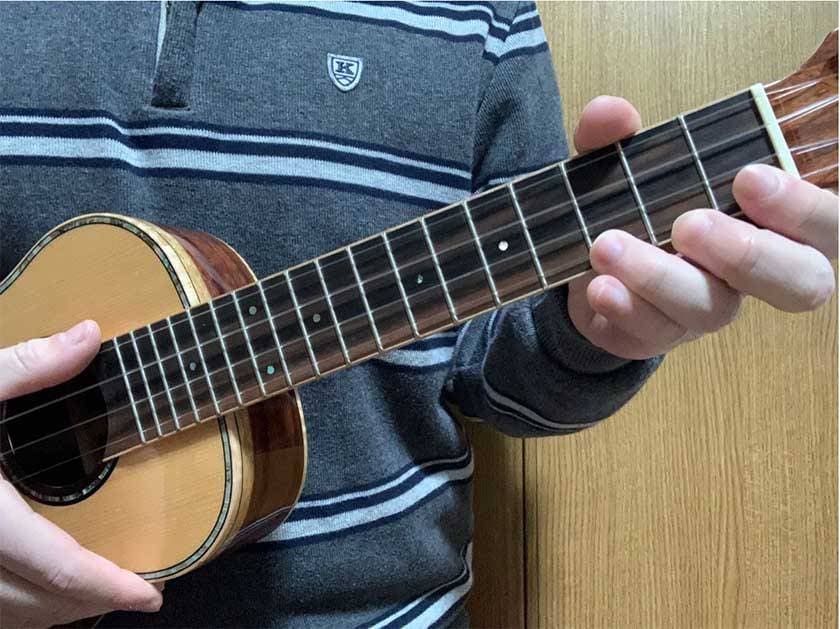
For beginners, I recommend breaking your practice up into three parts, each lasting 5 minutes:
1. Left Hand Practice (5 minutes):
This can include practicing chord shapes or basic exercises like playing a major scale (Do, Re, Mi, Fa, Sol, La, Ti, Do).
2. Right Hand Practice (5 minutes):
Focus on strumming techniques, such as downstrokes, upstrokes, or more advanced techniques like "Al Aire" and "Apoyando."
3. Song Practice (5 minutes):
Work on a short, simple song or just the chorus of your favorite song.
For beginners, I recommend separating left-hand and right-hand as a practice. Trying to work on both at once can be overwhelming and can make it hard to focus on proper form and sound quality. It becomes clear once you start practicing that 15 minutes can pass by very quickly, and you’ll realize that this is enough for daily improvement.
You might wonder, "Isn't that too short of a practice?" But don’t worry, this approach works. What’s most important for beginners is to make playing a habit every day. Honestly, the specific content of your practice isn't the biggest factor at the beginning.
One common mistake is skipping practice during the busy weekdays and trying to make up for it by practicing for hours on weekends. This is a pattern I’ve seen with many people who eventually quit playing the ukulele. Someone who can’t even practice for 5 minutes a day will not be able to practice for hours on weekends. Plus, you won’t see improvement, and practicing for long periods on weekends will often be procrastinated, leading to eventual burnout and giving up.
To avoid this, make 15-minute daily practice a habit. Once you get used to it, you can extend your practice time to 30 minutes or even an hour.
Next, I’ll share an example for intermediate players.
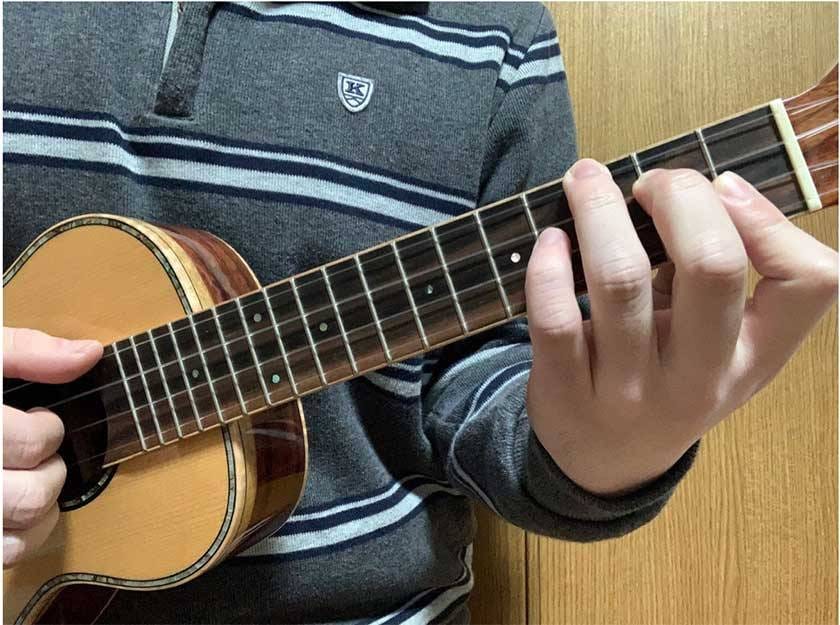
Defining when someone becomes an intermediate player can be tricky, but let’s say that intermediate players are those who:
- Have mastered the basic chords and strumming patterns.
- Have started working on solo ukulele and increasing their repertoire.
For intermediate players, a practice routine that works well might include:
1. Right and Left Hand Technique Practice (5 minutes):
Focus on refining specific techniques, like hammer-ons, pull-offs, slides for the left hand, and tremolo or fingerpicking techniques for the right hand.
2. Song Practice (5 minutes):
Continue working on songs, but with a higher level of difficulty compared to beginner songs. Choose songs that feature various techniques to broaden your playing.
3. Recording and Listening (5 minutes):
This is a crucial part of intermediate practice. Recording your playing helps you hear things you might not notice while playing. It’s very insightful to listen to your own performance objectively.
When you were a beginner, you likely practiced left and right-hand techniques separately. However, as an intermediate player, you’ll need to start combining both hands as you work on more complex techniques and songs.
While it’s important to keep practicing techniques, it’s also helpful to occasionally revisit basic exercises to ensure you aren’t developing bad habits. For example, practicing scales or basic chord transitions is still beneficial.
When it comes to song practice, you can still work on songs you love, but make sure they’re more challenging than what you worked on as a beginner. Choose songs that incorporate various techniques (hammer-ons, pull-offs, slides, tremolo, etc.) so you’re continuing to grow your skills.
Here’s the key part of an intermediate practice routine that’s often overlooked: recording yourself. Using your smartphone, voice recorder, or even an old cassette recorder (if you happen to have one!)—just record your playing. It’s surprising how many mistakes or issues you’ll discover by actively listening to your own performance.
You’ll probably hear things like:
Choppy sound or unconnected notes.
Volume inconsistencies.
General sloppiness that you might not have noticed while playing.
It can be discouraging at first, but don’t worry! This is a normal part of the learning process, and everyone goes through it. The key is to keep practicing and listening to yourself.
By consistently practicing and recording yourself, you’ll soon be on the path to becoming an advanced player.
Next, I'll share some practice suggestions for advanced players.
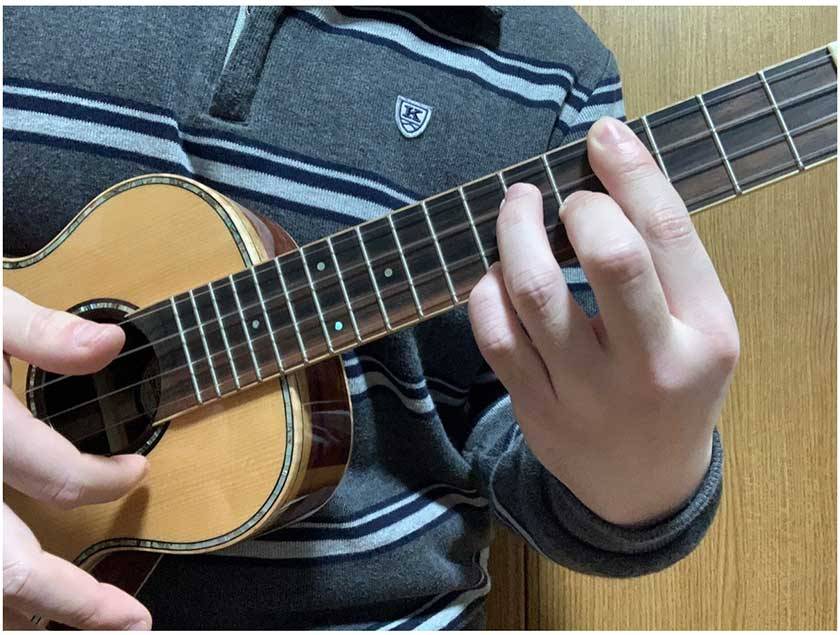
Song Practice (5 minutes), Technique Practice (5 minutes), Theory & Improvisation Practice (5 minutes)
Both song practice and skills practice are included, but the order of practice changes for advanced players. The idea of “practicing techniques for the sake of the song” is central to the advanced approach. This means that when you feel a particular part of a song could be improved, you practice specific techniques to refine that section and make adjustments.
The addition of Theory & Improvisation practice is another important aspect.
However, in reality, the practice doesn't just involve theory and improvisation—it also involves a lot of other things. Studio musicians, for example, can look at a chord chart and immediately play various types of accompaniment or solos on the spot.
This skill cannot be achieved just by being able to play songs well. To master it, you must study theory books, practice reading sheet music, play hundreds of songs, and gain live performance and recording experience. The ability to apply theory and improvisation seamlessly comes from these cumulative experiences.
The difference between professionals and advanced players is often seen in how they can spontaneously apply their knowledge in real-world scenarios, like in live performances or studio recordings. This skill isn't developed just by practicing songs—it's honed through consistent learning and experience.
Summary
Those who are considered "professionals," not just in ukulele, but on any musical instrument, place great importance on foundational practice. This is something that both beginners and intermediate players should remember. While basic exercises may feel like a detour, they are often the quickest route to improvement.
Although I don’t know what level the readers of this column are at, the most important thing is that after practicing today, you will definitely be better tomorrow. Please continue practicing every day at a pace that feels manageable for you.
Thank you for reading until the end.
The “sound & person” column is made up of contributions from you.
For details about contributing, click here.






